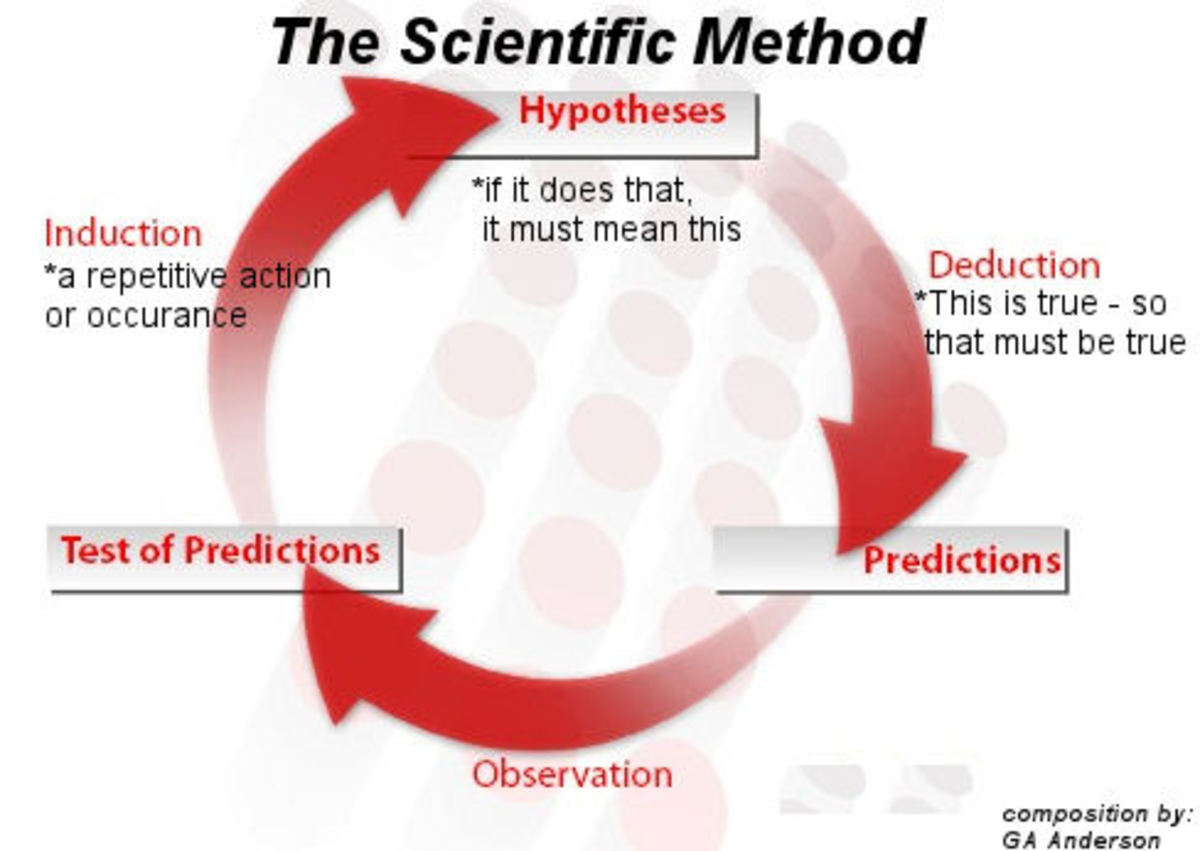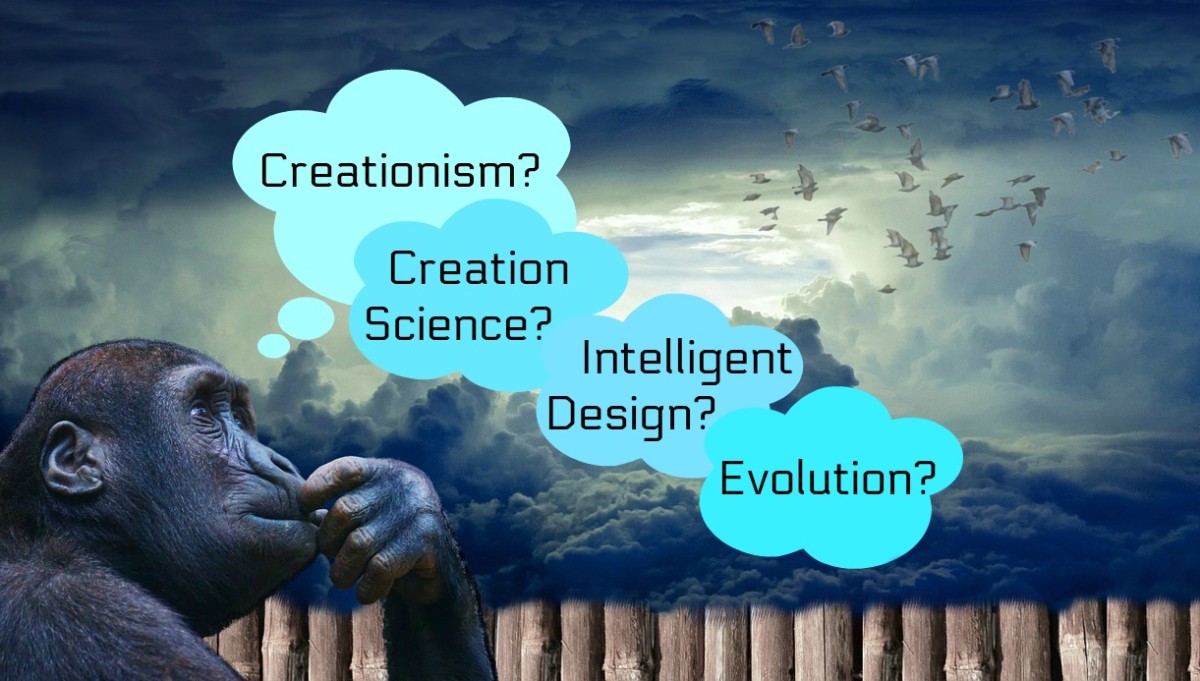Creationism: Atheism, the Problem of Induction and How Christ is Needed to Make Sense of Everything

Introduction
There is an obstacle in the path of materialism, naturalism, and atheism that is often overlooked, but what I would consider to be the their greatest challenge to consistency and rationality. If you are not familiar with the above mentioned terms, feel free to take some time and learn them as it would be helpful in this discussion.
A man named David Hume described it as the problem of induction, where he essentially described the non-rationality of everyday life. This sounds vague and perhaps a little 'heady', but I will try and describe what I understand concerning the issue, apply it to our every day life and tie it in with what it has to do with Jesus Christ.
Another controversial article can be found here.
Setting Up the Problem
Induction
A practical way of describing induction would be: drawing a general truth from limited and minimal experiences. For instance, you do not check the sturdiness or structural integrity of every chair you come across. You have drawn a general truth, 'Chairs will support my weight and girth,' from your experience, 'most every chair that I have sat in has supported my weight so far.'
A formal line of reasoning might follow as such:
- Every chair I have come across has supported my my weight
- In general, chairs will support my weight -or- the next chair I sit in will support my weight
When we do anything it seems we tend to assume things will carry on the way they always have. When I fill my car up with gasoline, I assume that gasoline has remained combustible just like it has the hundreds of times before. When I make a cup of coffee I assume liquid afterwards is a mixture of the water going through the coffee beans, not a pot of anti-freeze or some other dangerous chemical. In fact we live just about every aspect of our life with these mini-assumptions that we are confident in. I walk and I expect my legs to carry me, I talk and I can expect my words to not change and what comes out is what I meant to come out (well most of the time). We may not have examined our life this way but we quietly and confidently live like this. I do not check my legs for each step to make sure I can put my weight onto it. I do not check the chemical make-up of my coffee to make sure it isn’t lethal. I speak and I get what I want to come out… usually.
We often do this because a lot of our experience has affirmed our future actions. Right? Take for instance the walking bit. I do not test my legs for stability because I just used them and they were working just fine yesterday, last night, two hours ago or to get me to my laptop. They worked just fine then, that means they will work just fine in a moment when I take a potty break.
This is, in a sense, science and how the practice of science is done. There is a hypothesis, it is tested and then we confirm and hold the hypothesis as true. Well we treat the hypothesis as true and behave as though it is true until something comes along and the hypothesis is changed.
Applying the Scientific Method
Consider the truths discovered with the scientific method and see how they are applied to the vast universe we never interact with.
For instance, and for simplicity's sake, consider the discovery of DNA. If I asked you a simple question, "Do all living organisms have DNA?" You might respond with a confident, "Yes."
But how are you so certain? Have you microscopically examined every living organism? Or do you hold this as true because it seems that every living organism that has been examined so far for DNA has had DNA.
This is a fair and very useful way of thinking! In fact, medical science depends greatly on induction. Considering all the chemicals we put into our bodies to interact with other chemicals greatly depends on the assumption they will continue to react the same way. We don't run blood tests and body scans on a person before they take an aspirin. We simply assume because the chemicals in aspirin have interacted with chemicals in our bodies in a way to relieve pain in the past, that they will continue to do so now and in the future.
I hope this makes sense.
The Problem
I understand I haven't gone into great depth with the scientific method, but my intention is not to teach the full breadth of the method, but to demonstrate how induction is extremely important in making truth claims (facts). To make progress in the argument though, the real issue is not whether one inducts well, but if one can give a satisfactory basis for why they can induce.
Now let's return to the chair example and use an easier object, one that I have seen used to make sense of this idea: snow. We introduced the chair to make an example of how we judge the sturdiness of future chairs we encounter. We will use snow to make the same point about unobserved 'matters of fact' and the future. So follow along:
- In my experience snow has been cold.
Because of this we conclude:
- All snow is cold -or- the next bit of snow I encounter will be cold.
Can you see how we do this with most everything in our lives when approaching future events? We can make it even more simple.
- In my experience all A's are B's
- I will conclude that all A's are B's -or- the next A I come across will be a B. (future)
Take a moment and notice something, it would be easy to point out that my conclusion is not valid, since it would be logical and acceptable for an A to be something else. This has to do more with 'formal validity', a technical term, but it also carries over into the real world.
If A is snow and B is cold, and this is where we stop with the example above, it would be logical and reasonable to assume that there is snow I haven't experienced that is not cold. So we need to introduce a premise, or another truth to make sure our inductive reasoning isn't made irrational right here.
- In my experience snow has been cold
- Nature is Uniform (has been in my experience)
- All snow is cold -or- the next bit of snow I encounter will be cold.
There is the premise that makes induction viable. In every instance we use induction, we assume that Nature is Uniform, or assume that since nature has been uniform in my experience so far, that it is representative of the whole of nature. (everything unexperienced)
Since we introduced the middle premise, this validates our above line of logic or syllogism; but this is where the problem shows itself. There is really no reason to accept the Uniformity of Nature. The first premise is not in question, but if we want to accept the last premise, we need to find a reason to accept the middle premise.
The Heart of the Problem
What Reason Do We Have to Believe in the Uniformity of Nature?
To be honest and straightforward, the atheist, agnostic, materialist, and naturalist have no good reason to accept that nature is uniform, or their experience of nature represents the vastness of nature or that even mankind's experience of nature is representative of the universe.
So to clarify, the uniformity of nature is a claim concerning unobserved matters of fact, more particularly, the future. Since all beliefs or conclusions concerning the future are based on induction, to give a rationale for believing in the uniformity of nature, you would need to argue inductively to do so. Since the uniformity of nature figures as a premise in any inductive argument, all the arguments for the uniformity of nature would be circular. To conclude, there are no non-circular arguments for the uniformity of nature.
How is this Significant
Now take for a moment every arguing atheist out there who might say something like, "Science has championed religion! No longer do we need that faith based drivel because we have hardcore empirical fact."
They might say something like this, yet the very basis for what they believe about the world is based on an unverifiable assumption. The atheist will claim that religious folk have no rational or logical reasons to believe in God, yet they make this claim from a foundation they cannot account for. The atheist who propounds a naturalistic or materialist worldview must either submit they are irrational or that they are inconsistent.
Now Christian, this puts the ball in your court. You do have a foundation for believing in the uniformity of nature and it can be simply stated; God has created nature in such a way. He created all of nature to behave according to His will, which we have seen to be consistent and reliable. In fact, Christianity is the only worldview than can consistently and reliably account for the uniformity of nature and to take this one step further, any person who behaves as though nature is uniform borrows from the Christian worldview.
Yes, the atheist who says there is no God and propounds any such belief as a result of experience essentially sits in the lap of the creator God and slaps Him in the face. They ascend to the roof of a house with a ladder and once they reach the top they kick away the ladder, claim it never was and begin describing how they got their by some other means.
Do you like to argue with the atheist? Stop doing so about trivial things and first make them give a rational basis for their worldview. Unless you like arguing with irrational folk, save yourself the time. Once they understand their worldview is irrationally based, what objection of irrationality can they make to the believer? Especially to the Christian who can give a reason for the uniformity of nature.
Conclusion
Please note that claiming we believe things will continue to be the way they are because they have always been that way still assumes the uniformity of nature. For things to continue on the way they have been means all of nature will continue on the way it has.
To say that we are never certain about the future, it is all probability is still assuming the uniformity of nature. For something to be highly probably, there is an assumption that the factors surrounding an event will remain uniform. Even to say something is improbable is assuming things will continue the way they are as to make said event unlikely.
In either example, there is still a call to explain the rationale for assuming the uniformity of nature.
Please feel free to comment for clarification.







